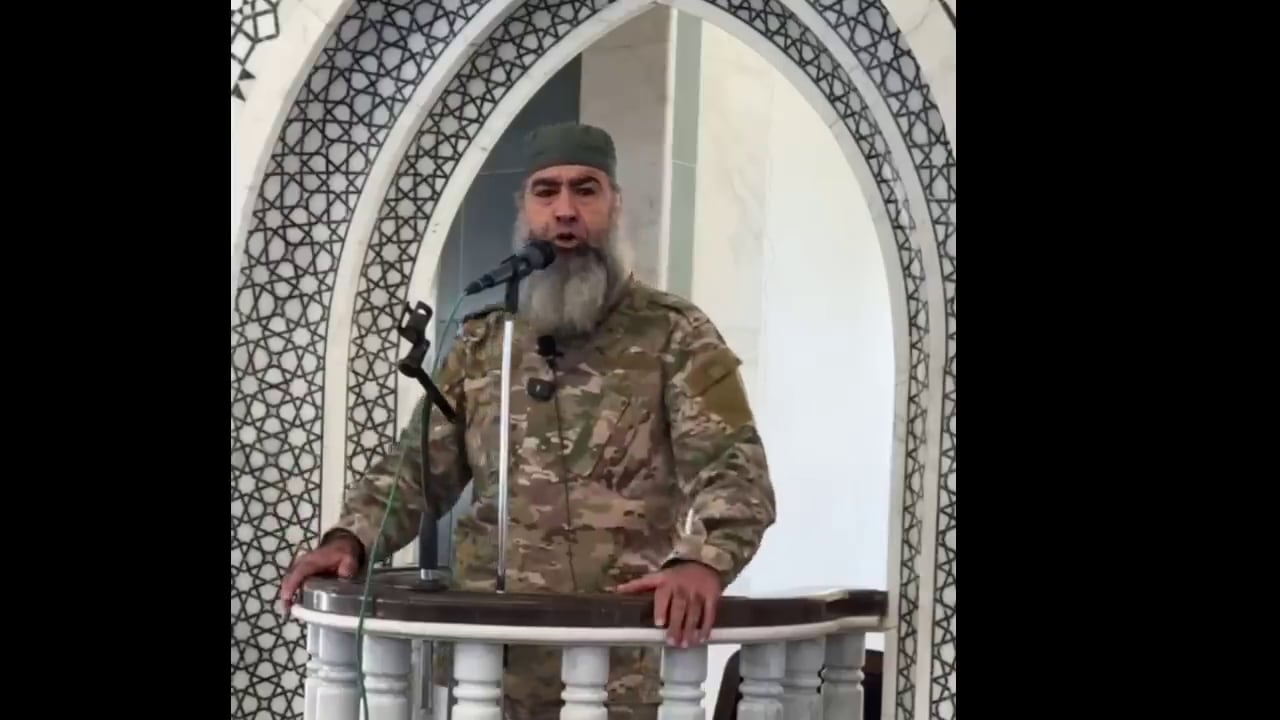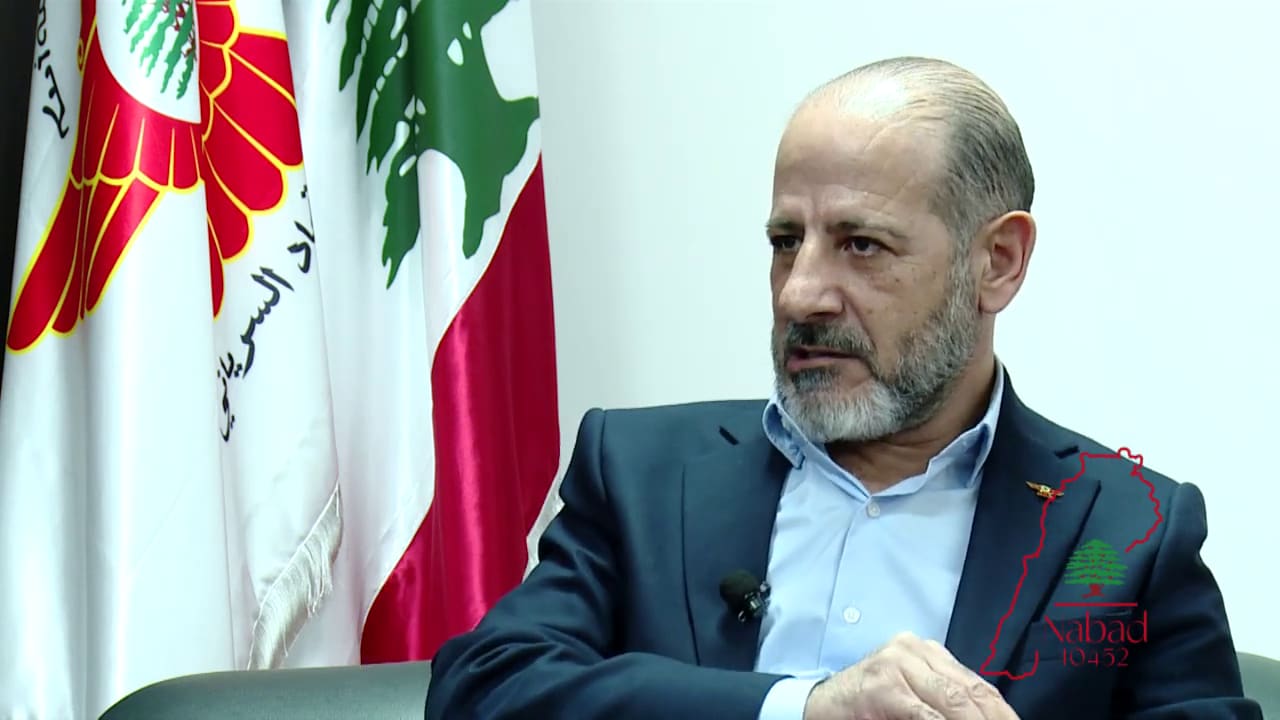
Following are excerpts from an interview with former mufti of Al-Qaeda Mahfouz Ould Al-Walid a.k.a. Abu Hafs Al-Mauritani, which aired on Alaan TV on November 8, 2014:
Abu Hafs Al-Mauritani: There has been no Caliphate for a long time, I'm sad to say, because the Muslims have abandoned their religion, and do not adhere to the Koran and the Sunna. The absence of a Caliphate has led many zealots, who are not aware of the importance of the Caliphate, to rush and declare caliphates from time to time, even though the conditions for a caliphate did not exist.
This is what happened when a caliphate was declared at the beginning of the 1990s. We were in Afghanistan at the time, in Peshawar [sic], to be precise. A group of young people chose a caliph, and swore allegiance to him. They fought people because of this. They fought people because of this. Blood was shed, and many bad deeds were committed. Ultimately, that caliphate evaporated, and the caliph fled to Britain, where he was granted political asylum.
Similarly, I think – although Allah knows best – that the caliphate by ISIS does not fulfill the necessary conditions. Thus, it is not deemed to be the Islamic caliphate that is sought by all Muslims.
[…]
ISIS engaged in wars and conflicts, in which blood was shed and the honor of women was violated. Many bad deeds were committed. There is no doubt about this. There is also no doubt that most of the trusted people I know, who tried to mediate between ISIS and rival Jihadi groups, held ISIS responsible for this. Shedding the blood of the Muslims is one of the gravest deeds of all.
[…]
I advise all the Muslim groups to fear Allah when it comes to other Muslims, to adhere to their religion, and to stop using their weapons against other Muslims.
[…]
Truth be told, many other Islamic groups have complained about ISIS, especially with regard to conflicts in which blood was shed, and the honor of women was violated.
Interviewer: What is your view about Abu Bakr Al-Baghdadi's declaring himself Caliph? Do you think that he is qualified for that?
Abu Hafs Al-Mauritani: To be honest, I do not know Al-Baghdadi personally or even through others. However, a caliph must meet certain terms, as outlined by the ulema. Some were agreed upon by the ulema, and others were disputed. In my view, the caliphate cannot be established by anyone – by Al-Baghdadi or anyone else – unless the religious authorities pledge allegiance to it.
Today, it is the ulema of the nation who are the leading religious authorities. I have not heard of any of the prominent ulema in general, or these associated with the Jihadi movement, pledging allegiance to Al-Baghdadi or acknowledge his caliphate. Therefore, I personally do not believe that Al-Baghdadi's caliphate is the Islamic caliphate that is sought by the Muslims, and that meets the necessary terms.
[…]
When certain things happened that ran counter to the shari'a, I condemned these things, and I even resigned from all my responsibilities in [Al-Qaeda]. Since this was my position vis- à-vis Sheik Osama, it is obviously my position when it comes to others. I say that these things run counter to the shari'a, and we must not remain silent about them and accept them.
Mass killings… Even the ugly method of killing, not merely the killing itself… Even someone who deserves to be killed should be killed gently and proficiently. The prophet Muhammad said: "Allah has prescribed proficiency in all things. So if you kill – kill well. If you slaughter – slaughter well. Let each of you sharpen his blade and spare suffering to the animal he slaughters." All the more so when it comes to a human being, especially a Muslim…I saw scenes of killings of Muslim prisoners… Our actions should be guided by the shari'a in which we believe. The purpose of establishing a caliphate is to instate the shari'a.
[…]
Even an infidel – if he is taken prisoner and converts to Islam – it is not permitted to kill him. These are the rulings of the shari'a. In Islam, even war has its rules and its moral values, which must be implemented. The scenes of killings that we have witnessed, the authenticity of which cannot be denied, merit condemnation.
Another deplorable thing done by the Islamic State organization is that on several occasions, they were called to turn to the shari'a for arbitration in disputes with other mujahideen in the Levant, but they refused to do so.
[…]
Why are journalists being killed? A journalist must not be killed. Unless he is found to be guilty of a crime, a journalist must not be killed, under any circumstances. Aid workers… Even non-combatant civilians – why are they being killed? There are other options.
[…]
Interviewer: What is your view about the splitting of ISIS from Al-Qaeda, and their refusal to obey Ayman Al-Zawahiri?
Abu Hafs Al-Mauritani: The truth is that this was expected, because those who are in the know realize that ISIS joined Al-Qaeda only due to temporary circumstances, and that many things worked against this union. The two groups differ on many ideological and political matters, as well as in organizational matters and matters of conduct. Under natural circumstances, their union would have been impossible.
However, the American invasion of Iraq created a common denominator between two groups. As I've said before, the Islamic State organization has its roots in the Al-Tawhid Wal-Jihad organization. That organization was founded upon the principle of fighting the [Arab] regimes, whereas Al-Qaeda was founded on the principle of fighting the external enemy, represented, in their view, by the U.S. and Israel.
The Al-Tawhid Wal-Jihad organizations deemed all Shiites to be infidels, whereas Al-Qaeda did not. Since Al-Tawhid Wal-Jihad deemed all Shiites to be infidels, it targeted markets, public areas, and mosques, and killed many. Incidentally, when I talk about the Al-Tawhid Wal-Jihad organization, I am referring to the faction led by brother Abu Mus'ab Al-Zarqawi, may Allah have mercy on his soul. Some of the sheiks considered to be the religious authorities of that organization, such as Sheik Abu Muhammad Al-Maqdisi, expressed their opposition, on several occasions, to the policy of the organization in Iraq.
I heard him objecting to the takfir of all Shiites, and to the operations in which Shiite civilians were killed. He advised his brothers to refrain from doing this. But the group in Iraq adopted that policy, and this was very harmful to Al-Qaeda.
[…]
Al-Qaeda was attacked in Afghanistan, and it needed someone to attack the Americans in Iraq, and so it found Abu Mus'ab Al-Zarqawi and his people. Brother Abu Mus'ab Al-Zarqawi needed legitimacy, and he found it with Sheik Osama and Al-Qaeda. This was the basis for the Islamic State in Iraq joining Al-Qaeda.
[…]













